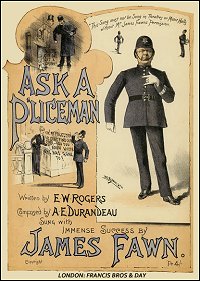 W
W"Ask a P'liceman" is a music hall song. It was first performed in 1888 by English comedian James Fawn, and was written by Edward William Rogers (1864–1913) and Augustus Edward Durandeau (1848–1893).
 W
W"Asleep in the Deep" is a song written by Arthur J. Lamb and composed by Henry W. Petrie in 1897. It is titled after a refrain at the end of the song. The phrase "asleep in the deep" refers to those who have drowned. The lyrics allude to those who have met such a fate, while at sea.
 W
W"Balocchi e profumi" is a 1928 Italian song composed by E.A. Mario. Originally launched by Gennaro Pasquariello, it was popularized by Anna Fougez, as to become a classic in the repertoire of Italian café-chantant artists.
 W
W"The Blue Juniata" is a popular song written by Marion Dix Sullivan in 1844. It was one of the most popular parlor songs of the nineteenth century, and the first commercially successful song written by an American woman. The song was referenced by Mark Twain in his autobiography and recorded in 1937 by Roy Rogers and the early Sons of the Pioneers.
 W
W"Rock O' My Soul", also known as "Rock My Soul", "Bosom of Abraham" or "Rocka My Soul", is a traditional African American spiritual. It was first documented by William Francis Allen, in the 1867 collection Slave Songs of the United States. Allen attributed the origin of the song to the state of Virginia and documented the following lyrics.Rock o' my soul in de bosom of Abraham, Rock o' my soul in de bosom of Abraham, Rock o' my soul in de bosom of Abraham, Lord, Rock o' my soul.
 W
WThe Bozner Bergsteigerlied is one of the two unofficial hymns of the South Tyroleans, the other being the Andreas-Hofer-Lied. Its lyrics were composed in 1926 by Karl Felderer in Moos am Ritten to the melody of an old Tyrolean craftsmen's song.
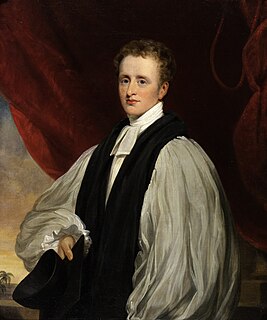 W
W"Brightest and Best" is a Christian hymn written in 1811 by the Anglican bishop Reginald Heber to be sung at the feast of Epiphany. It appeared in Heber's widow's compilation of hymns entitled Hymns Written and Adapted to the Weekly Service of the Church Year in 1827. It can be sung to a number of tunes, including "Liebster Immanuel", "Morning Star" by James P. Harding, "Epiphany" by Joseph Thrupp, and "Star in the East" by William Walker. It appears in The Lutheran Hymnal, and appeared in the 1966 Methodist hymnal. It has been recorded by a number of artists, including Glen Campbell, Joanne Hogg and Kathy Mattea. The Kentucky traditional singer Jean Ritchie often sang this and told of her childhood memory of her grandmother sitting by the fire and singing it quietly to herself on Twelfth Night; the Library of Congress collected it from her in 1951.
 W
W"Carve Dat Possum" is a minstrel song written in 1875 by Sam Lucas. Very popular in its time, it tells of hunting and preparing a possum to eat. The chorus:Carve dat possum, carve dat possum, children, Carve dat possum, carve him to de heart; Carve dat possum, carve dat possum, children, Carve dat possum, carve him to de heart.
 W
W"Children, Kinder, Enfants" was the Luxembourgish entry in the Eurovision Song Contest 1985, performed in French by Margo, Franck Olivier, Diane Solomon, Ireen Sheer, Malcolm and Chris Roberts.
 W
W"Cora, the Indian Maiden's Song" is a song written by Shirley Brooks for his burletta The Wigwam sometime before 1847. Alexander Lee composed the music. In the song, Cora, the Indian maiden, is praising the wind: "Oh! The wild free wind is a Spirit Kind, And it loves the Indian well." The song's chorus is:
 W
W"The Death of Minnehaha" was a part of Henry Wadsworth Longfellow's 1855 poem The Song of Hiawatha.
 W
WDu tout plongiet is a French chanson.
 W
WFors seulement is a French chanson, popular as a basis for variations and as a cantus firmus. An early version is attributed to Johannes Ockeghem - this is sometimes called Fors seulement l'attente to distinguish it from his similarly titled Fors seulement contre.
 W
WThe Georgetown University Alma Mater is one of the traditional songs of Georgetown University, and the university's official and undisputed alma mater. It was written to the tune of the Welsh battle song Men of Harlech in 1894 by Robert J. Collier, a Georgetown student. The song is performed by the university orchestra and occasionally other groups at various school events, including commencements and athletic games.
 W
W"Ginza Kankan Musume" is a popular song composed by Ryōichi Hattori, with lyrics by Takao Saeki. It was recorded by Hideko Takamine and released in April 1949.
 W
W"The Great Little Army" is a British military march that was composed by Kenneth J. Alford in 1916. Alford, whose real name is Frederick Joseph Ricketts, was a bandmaster from the British Army/Royal Marines who in his last position he was appointed to, directed the Band of HM Royal Marines, Plymouth. It was made to honour the British and Allied victories that were made in the Western Front. At the time, they were known as "The Contemptible Little Army" by the Imperial German Army.
 W
WHighland Mary is a song composed in 1792 by Scottish poet Robert Burns. It is one of three works dedicated to Mary Campbell, with whom Burns was in love in the 1780s. The others, "Highland Lassie, O" and "Will Ye Go to the Indies My Mary?", were composed in 1786. "Highland Mary" consists of four stanzas that speak of Burns's affection for the lady, his melancholy at her death and his continued memory of her. The melody was that of "Katherine Ogie."
 W
W"Hold on Abraham!" is a popular song dating from 1862, during the time of the American Civil War. The song is fast paced and repetitive, and, at the time of its popularity, was often performed by minstrels. The words and lyrics were composed by William Batchelder Bradbury.
 W
W"I Have Got The Blues To Day!" is a song published in 1850 with words by Miss Sarah M. Graham and music by Gustave Blessner. The song tells a tale of an evening of entertainment in which the singer imbibed too much. The next day, in various verses, his "little Fannie" fails to call, he is sick, he wonders if his friends are ailing also, etc. Each verse ends with a variation of the theme:Then I was gayest of the gay, But I have got the blues to day: Then I was gayest of the gay, But I have got the blues to day.
 W
W"The Indian Hunter" is a song based on a poem by Eliza Cook. Music was added by Henry Russell and published in 1842. In the poem, a lament, the hunter is questioning what the white man wants with him and his home.
 W
W"Juanita" is a love song variously subtitled "A Spanish Ballad", "A Song of Spain", and others. "Juanita" was number two of a six song collection entitled Songs of Affection published December, 1853 by Chappell & Co. and composed by noted Victorian society figure and social reformer Caroline Norton. Juanita was the first ballad by a woman composer to achieve massive sales, and its original setting has been seen to be subtly subversive of gender roles, a topic of some significance to Mrs. Norton.
 W
WKaimana Hila is a Hawaiian song composed in 1916 by Charles E. King, assisted by Andrew Cummings, about Diamond Head, which can be viewed from Waikiki beach on Honolulu, Oahu Island.
 W
W"The Lament for Owen Roe" is a traditional Irish ballad dating from the nineteenth century. With a mournful tune, based on an eighteenth-century composition called Lament for Owen Roe O'Neill by the harpist Turlough O'Carolan, it is a lament for the death of Owen Roe O'Neill. Its lyrics were written by Thomas Davis and draw on the tradition of romantic nationalism which was at its height during the era.
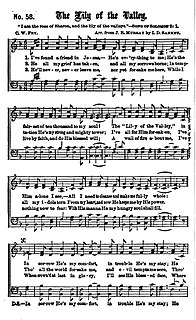 W
W"The Lily of the Valley" is a Christian hymn written by William Charles Fry (1837–1882) in London for the Salvation Army. Ira D. Sankey arranged the words to the music of "The Little Old Log Cabin In The Lane" composed by Will Hays.
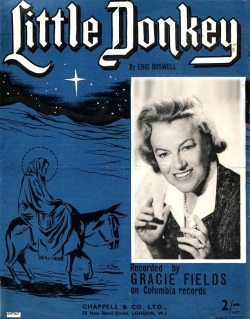 W
WLittle Donkey is a popular Christmas carol, written by English songwriter Eric Boswell which describes the journey by Mary the mother of Jesus to Bethlehem on the donkey of the title.
 W
W"Lost Again" is an song by Swiss electronic band Yello, released by Stiff Records in 1983 as the fourth single from Yello's third album You Gotta Say Yes to Another Excess.
 W
WA love song is a song about romantic love, falling in love, heartbreak after a breakup, and the feelings that these experiences bring. A comprehensive list of even the best known performers and composers of love songs would be a large order.
 W
W"Loving You" is a song by American recording artist Michael Jackson that was originally recorded during the Bad sessions in 1985 and the chorus section had notable similarities to "The Girl Is Mine". Matt Forger, one of Jackson's trusted engineers stated that, "It was a good song, just not in serious consideration for the album, Bad. One of many that were recorded and put away." A reworked version of the song was included in Jackson's posthumous album Xscape (2014).
 W
W"Manuelita la tortuga" is an Argentine song by María Elena Walsh about a female tortoise. In its native country it is a well-known children's song. The 1999 film Manuelita was adapted from the song. A French version of the song was written and made famous by Argentine singer Jairo.
 W
W"Merck toch hoe sterck" is a Dutch war song and sea shanty, written around 1626 by Adriaen Valerius. The music is based on an Elizabethan lute song written by Thomas Campion in 1606.
 W
W"Mitt hjerte alltid vanker" is an old Scandinavian Christmas song, released as a single with Norwegian singer Sissel in 1995. It is one of several versions of the originally Danish hymn, which has since been translated and set to different melodies in the different Scandinavian countries. Kyrkjebø sings a Norwegian translation set to a Norwegian variant of a Swedish folk melody, which was first written down in 1816 in Västergötland in Sweden. This is the version is the most popular in Norway and Sweden.
Mor lam sing is a fast-paced, racy and modernized version of the traditional Lao/Isan song form mor lam . Sing comes from the English word "racing". In this style, the lead singer is accompanied by the khaen, Western drums, electric guitar, electric keyboards and bass guitar. The style was invented in Chaiyaphum province around 1985 and was popularised over the next few years after it was taken up by Ratdri Sivilai in Khon Kaen. It is based on the Khon Kaen style of lam tang san but incorporates string instrumentation and luk thung singing styles and extensive use of the Central Thai language rather than Isan.
 W
W"My Gal is a High-Born Lady" is a minstrel song was written by Barney Fagan and Gustav Luders (music) in 1896. It was a favourite well into the first half of the 20th century and is still performed today, often in bluegrass style. Its unusual ragtime rhythm is regarded as seminal in the later popularity of the Foxtrot. The original lyrics are offensive to modern culture due to their racial stereotypes and the song is notable for how often it has been performed with altered lyrics.
 W
W"Oh aint I got the Blues!" is a song and dance tune written by A.A. Chapman and published in 1871. In the song the dancer is bemoaning how unlucky he is. Each verse ends with the chorus:
 W
WOh Promise Me is a song with music by Reginald De Koven and lyrics by Clement Scott. The song was written in 1887 and first published in 1889 by G. Schirmer, Inc. as an art song. De Koven may have based the melody partly on a song composed by Stanislao Gastaldon, "Musica Proibita". In 1890, De Koven wrote his most successful comic opera, Robin Hood. After opening night, the contralto playing Alan-a-Dale, Jessie Bartlett Davis, demanded a song to better show off her voice, threatening to walk out of the production. De Koven inserted "Oh Promise Me" into the score for her.
 W
W"Płyniesz Olzo po dolinie" is a poem by Polish educator and poet Jan Kubisz. It is an unofficial anthem of Cieszyn Silesia, particularly of the Poles in Zaolzie. Its theme is the cultural assimilation of, and loss of national identity by, local Poles. The lyrics are centered on the Olza River, symbol of Cieszyn Silesia and Zaolzie.
 W
WPo dolinam i po vzgoriam, also known as Partisan's Song, is a popular Red Army song from the Russian Civil War and World War I. It is believed that the original song melody was composed by Yuri Cherniavsky in 1915 for recruits, but it is possible that it circulated in Russia even before. Vladimir Gilyarovsky wrote text for the song named "March of the Siberian Regiment". His text has three versions. Peter Parfenov wrote the latest version of the song after the Battle of Volochayevka in 1922.
 W
W"Psikopatja Jote" is a song performed by Kosovo Albanian singer and songwriter Filloreta Raçi (Fifi) and Kosovo Albanian rapper MC Kresha. The record was released as a single through Acromax Media GmbH and was composed for the duo's participation at Kënga Magjike 2018.
 W
W"The Rakes of Mallow" is a traditional Irish song and polka. The song is about the rakes from the town of Mallow, a town in County Cork. The song was written about the Creagh family who came from Doneraile, seven miles away. It is similar to the tune of The Rigs of Marlow, from which it may have been adapted.
 W
W"Roll, Alabama, Roll" is an American-British sea shanty of the nineteenth century. It is based on the exploits of the CSS Alabama a sloop-of-war of the Confederate States Navy which enjoyed success as a commerce raider against Union shipping during the American Civil War.
 W
W"Sally in Our Alley" is a traditional British song, originally written by Henry Carey in 1725. It became a standard of British popular music over the following century. The expression also entered popular usage, giving its name to a 1902 Broadway musical and several films including Sally in Our Alley, the 1931 screen debut of Gracie Fields.
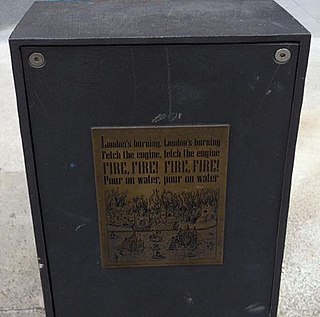 W
W"Scotland's Burning", are variants of a song and nursery rhyme popular with children.
 W
WSet Aside Your Tears is a World War I song written and composed by Wolfe Gilbert, Malvin Franklin, and Anatole Friedland. The song was first published in 1917 by Jos. W. Stern & Co. in New York, NY. The sheet music cover depicts a woman waving to marching troops.
 W
WShadilay is an Italo-disco song by the Italian band P.E.P.E., released in 1986 by the music label Magic Sound. It was written by Italian singer-songwriter Manuele Pepe.
 W
W"Sich a Getting Up Stairs" is an American song that dates to the early 1830s. It was in the repertoire of Thomas D. Rice and other early blackface performers.
 W
WSiebenbürglied (Transylvania song) is a regional anthem composed by Johann Lukas Hedwig with lyrics by Maximilian Leopold Moltke as a regional anthem for Transylvania Saxons. The anthem has been translated into both Hungarian by Ritoók János and Romanian by Dan Dănilă.
 W
WSpade Cooley's Western Swing Song Folio was the first songbook to identify the big Western dance band music as Western Swing. In October 1944, "Billboard made the following announcement, unceremoniously giving the subgenre its common label for the first time in a national publication: 'Spade Cooley will put out 25 of his original tunes, together with an album of band numbers and suggestions on arrangements for Western Bands. Book to be titled 'Western Swing'." All songs in the folio list both Spade Cooley and Smokey Rogers as co-writers.
 W
W"Tausend Sterne" is a song written and recorded by Belgian acid house musician Praga Khan. It was featured on Freakazoids.
 W
W"Ten Green Bottles" is a children's repetitive song that is popular in the United Kingdom. In essence, the song is a single verse repeated, each time with one bottle fewer:
 W
W"There's a Friend for Little Children" is a hymn written by Albert Midlane. It was written on the evening of 7 February 1859, and was known as "Above the Bright Blue Sky" before it was published. It first appeared in a book entitled Good News for the Little Ones in December 1859. The original verses were arranged differently, and its tune "In Memoriam" was composed in 1868 by Sir John Stainer during a committee meeting for the 1875 version of Hymns Ancient and Modern.
 W
WA vaudeville is a French satirical poem or song born of the 17th and 18th centuries. Its name is lent to the French theatrical entertainment comédie en vaudeville of the 19th and 20th century. From these vaudeville took its name.
 W
W"Walking in the Zoo" is a popular English music hall song published in 1869. It was composed by Alfred Lee with lyrics by Hugh Willoughby Sweny, and was first and most successfully performed by Alfred Vance, billed as "The Great Vance".
 W
WWilliam Taylor is a British folk song, often collected from traditional singers in England, less so in Scotland, Ireland, Canada and the USA. It tells the story of a young woman who adopts male dress and becomes a sailor in order to search for her lover. Other names include Billy Taylor, Brisk Young Seamen, Bold William Taylor, Down By the Seashore, The False Lover, The Female Lieutenant; Or, Faithless Lover Rewarded, If You'll Get Up Early in the Morning, The Life and Death of Billy Taylor, My Love, Poor William Taylor, Sally Brown and William Taylor, and Young Billy Taylor.